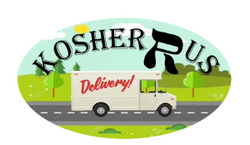The rules that govern kosher cooking and eating are detailed. Truly keeping kosher requires rigorous adherence, and in the case of restaurants and commercial kitchens, the careful watch of a religious supervisor to make sure all rules and spiritual laws are followed. In this article, we have compiled the top things you need to know about keeping a kosher kitchen.
Kosher Food to Enjoy
The following food are allowed to be eaten in a kosher kitchen:
- Beef: cuts like chuck, rib, brisket and plate. Other cuts may or may not be kosher depending on the preparation.
- Lamb
- Fish with fins and scales
- Chicken
- Duck
- Goose
- Turkey
Non-Kosher Foods To Avoid:
It is extremely important to be on the lookout for these types of non-kosher food. At times, these can and do get confused with kosher food. For example, a sausage (kosher) can be confused with pepperoni (non-kosher). Whenever you are unsure if a meat is kosher or not, it is better to be safe and sorry and to just avoid eating the meat at the time.
- Pork
- Rabbit
- Fish without fins and scales, including shellfish like crab and lobster
- Birds of prey
- Foods derived from animals that aren’t considered Kosher (like gelatin)
- Meat and dairy served together
Kosher Food Symbols
Whenever going grocery shopping, look for a label on the packaging marked “K” or “OU” for kosher. These markings can indicate that the food is pareve—or does not contain meat or dairy. Here are a few additional symbols to look for
“D” of “DE”: The product contains dairy or was made in a dairy zone.
“M” or “Glatt”: The product contains meat.
“P”: The food is suitable to consume during Passover.
“F”: The product contains fish.
Kosher Kitchen Rules
Kosher food is not only about the ingredients that make it up, but how they’re prepared. From the slaughterhouse to the kitchen, strict preparation rules must be followed to ensure food remains kosher. For instance, meat and dairy products must never be combined, or even touched by the same utensil, even if that utensil has been washed. If you wish to learn more about the foundation of a kosher kitchen, read our recent blog about the 5 Essential Tips To Keep A Kosher Kitchen
Conclusion
Like we mentioned above, keeping kosher requires dedicated and strict adherence. If you already do keep kosher, you probably make the great efforts that are required in order to keep such a lifestyle. But when done and with good intentions, such a lifestyle becomes enjoyable. Kosher food doesn’t have to be Jewish, and Jewish food doesn’t have to be kosher. Pretty much any style or type of cuisine can be made kosher with the proper ingredients and set-up in the kitchen. Almost every ingredient in the world has a kosher alternative.
If you have stumbled upon a recipe and wish to switch to kosher ingredients alternatives, then our store is here at your service. KosherRus offers more than 1,000 items for kosher-keeping homes. We are sure you will find your kosher item at our store. Shop now at https://kosherrus.com ❤️
